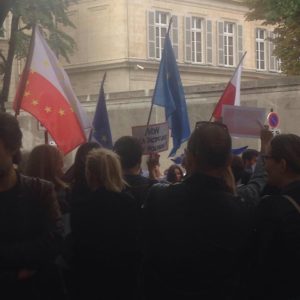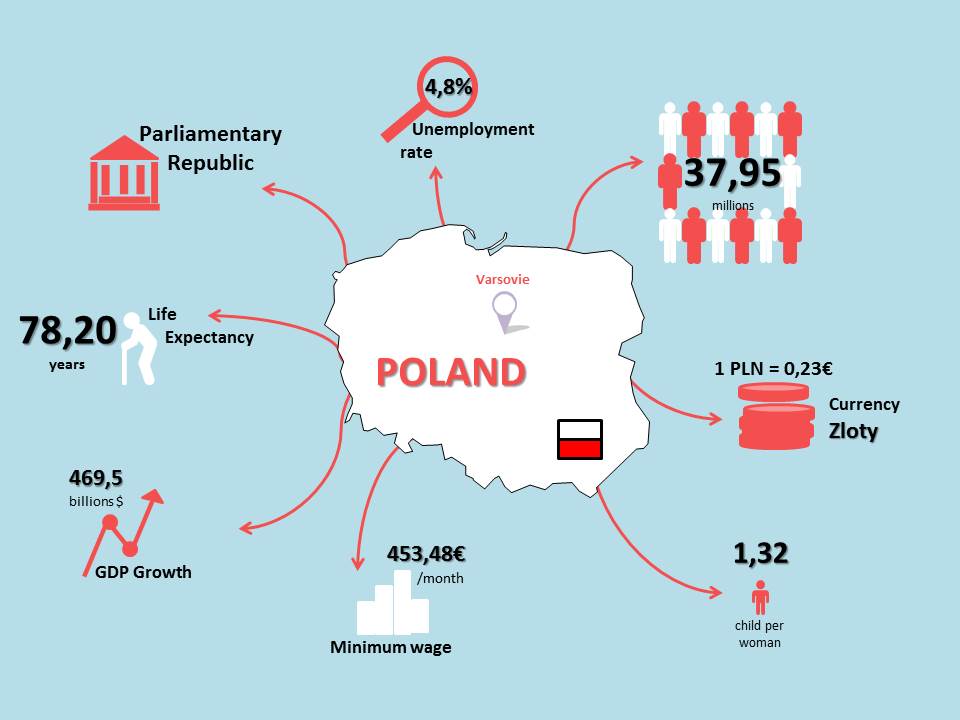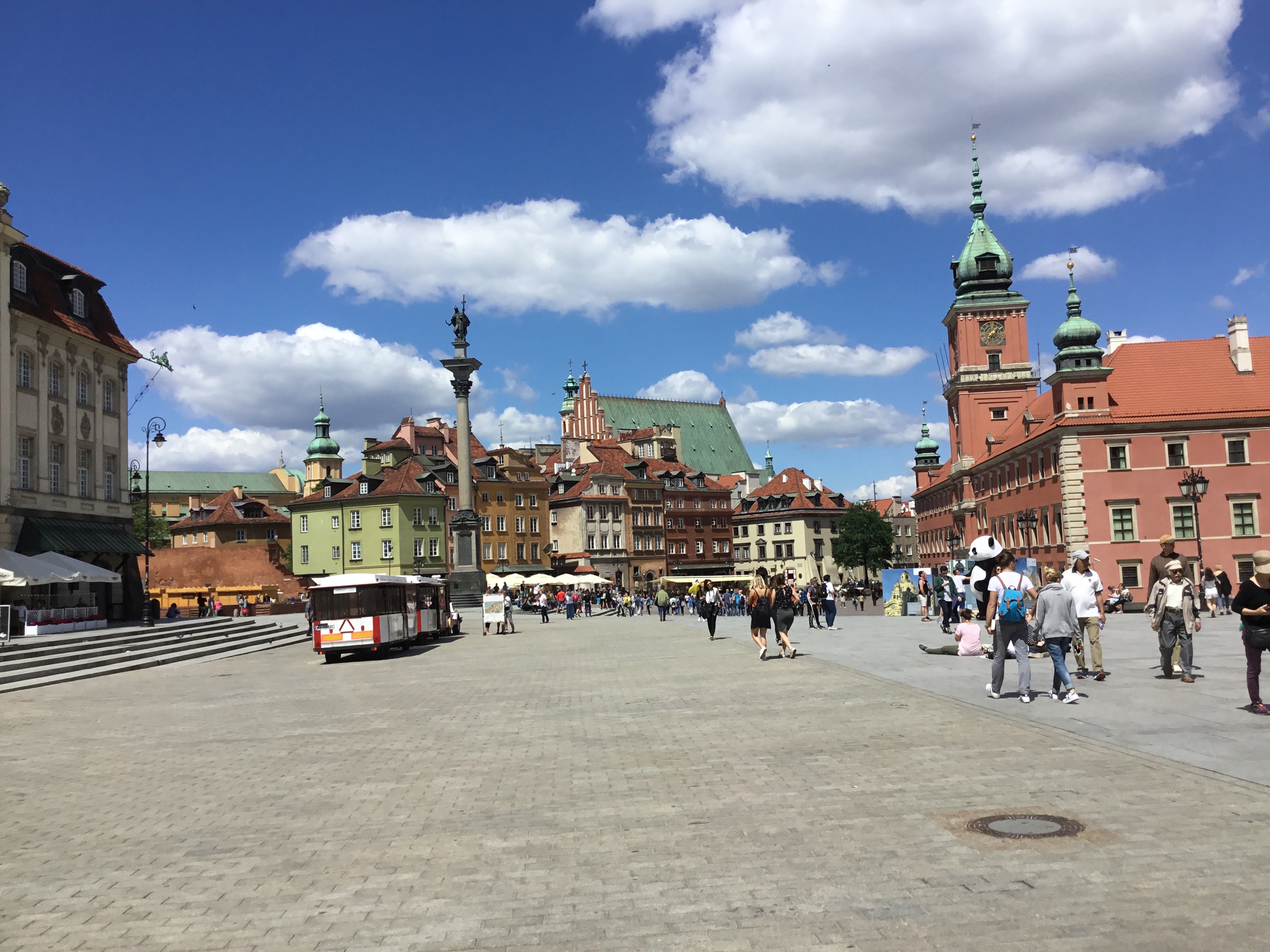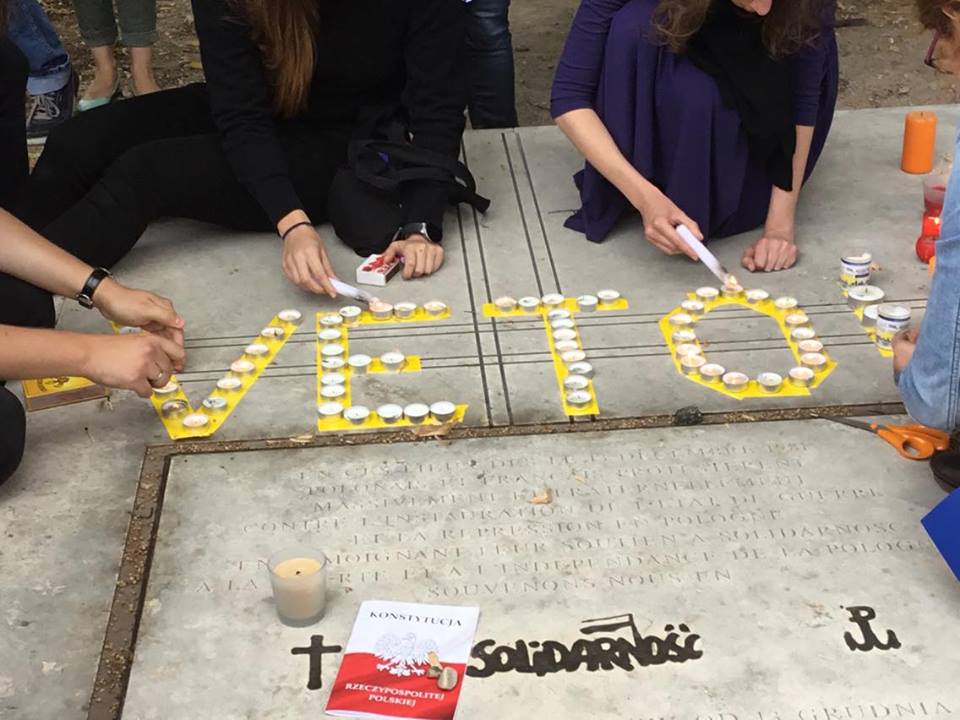Poland is now in the midst of political crisis and it depends on currently slowly awaking liberal and pro-European civil society whether this country will be on its direct way towards authoritarian regime or it will remain as a stable democracy. The responsibility of defending democracy lies mainly on the shoulders of the young generation which will be shaping the future of the country.

What is happening ?
In order to fully understand what is currently going on in Poland we need to go back a little bit in time. In 2015 surprisingly for all, Andrzej Duda from a right wing populist Law and Justice party (PiS) won narrowly the presidential elections and just a few months later PiS swept to victory receiving absolute majority in two chambers of parliament against the Civic Platform (PO) which had ruled already since 8 years.
The new government very quickly took over the public media, made a mess in Polish army through forcing many of the experienced generals to quit, put unqualified PiS members and their close friends/families at many of state-owned companies and demolished the independence of Constitional Tribunal. In the meantime, PiS tried to pass the law fully abolishing abortion and recently logs in the last major primeval forest in Europe – the Białowieża enlisted as UNESCO world heritage site. The government also have plans to restrict foreign ownership of private media.
Nevertheless, the biggest controversy in society caused a proposed new legislation that would have given the government more control over the judiciary. The upper house of parliament (Senate) in the middle of the night, thus already on Saturday of 15 July approved such two laws. The first one would have dissolved a body that nominates judges, with parliament choosing the members of its successor. The second one would have authorized the minister of justice to dismiss without justification the heads of common courts and to put a new ones in their place. In addition, three days earlier the lower house of parliament (Sejm) had introduced the third part of legislation which would have forced all judges of the Supreme Court into retirement.
That just provoked protests (yet still not so big) with people standing in the front of the building of the Supreme Court, carrying lighted candles symbolizing a funeral of the separation of powers in Poland.
On 18 of July during a parliamentary debate a president of PiS Jaroslaw Kaczynski, the true leader of the country as in fact both prime minister and president are just his puppets, made a very emotional speech calling the opposition traitors and murders of his brother president Lech Kaczynski who died in plane crash in 2010 in Smolensk in Russia. Two days later Sejm approved also the new law on the Supreme Court rejecting 1300 amendments of opposition in one single vote and one day later Senate already adopted that bill.
Such offensive language used by Kaczynski together with a high speed of pushing all three parts of legislation through parliament without conducting widespread public consultations only triggered a popular unrest. People have been annoyed by the entirety of activities of the ruling party which in the long term can pull out Poland from the EU, if not formally then at least mentally. That is something unacceptable not only for around 80% of Poles supporting the EU membership but especially for the young generation which got used to living in a free and liberal society and now became aware of gradually loosing those core values. It explains why for the first time since PiS won the elections so many young people went out to the streets. However, even more astonishingly for the ruling party, thousands of people protested not only in few big agglomerations but in total in 180 smaller cities and towns across the whole country!
Partial victory and undelying issues
The crowd shouted “free courts!” and addressed the president Andrzej Duda with slogan “3 times veto!” as he became the last person who could stop entering into force three pieces of new legislation. Surprisingly for all, after big protests lasting for more than one week, president followed partially the demands of the crowds and he vetoed two bills out of three. He claimed that the attorney general, who after the already passed law by PiS is at the same time the minister of justice, should not have such strong influence over the judiciary. After that demonstrators on the streets across the whole country shouted: “Thank you!” and “Veto third bill as well!”.
That concession of the ruling camp was a victory of slowly awaking civil society as without such strong resistance all three bills would become a part of Poland’s legal system for sure. However, if the president was indeed so reluctant to give too much power to the minister of justice, why he didn’t also vetoed the bill which gives him the right to hire and fire the heads of common courts?
The answer for this question can be twofold. The first one is that the president is still the puppet of Kaczynski who was afraid of riots and told Duda to veto two out of three laws, hoping that this move would appease and reverse the attention of protesters from signed law. In particular, that in line with new provisions the minister of justice will be able to remove unsubordinated heads of common courts anyway. Furthermore, this move increased the chances of Duda for the reelection as he demonstrated a moderate independence from Kaczynski and presented himself as a conciliator.
The second one is that there is a personal conflict in the ruling party camp. In line with that, the president wanted to undermine the position of the minister of justice (Zbigniew Ziobro), not only by vetoing two laws but also through signing one of the bill as in case of highly probable lack of increasing the efficiency of judiciary system (the official reason of introducing the “reform”), the main responsible for this failure will be Ziobro. Additionally, Duda also would sent a signal to Kaczynski that he would not be signing every part of legislation and that his views must be respected.
Future of the project ?
Whichever the reason was to make the president veto two bills, this is without any doubts just a partial victory of protesting crowds. The former Solidarity leader Lech Walesa told in one interviews that when you lead the protest it has to be planned “from A to Z” and that the people should be on the streets as long as the president would not veto also the third law. Unfortunately, psychological factor played its role and after two vetoes protesters came back to their homes, in spite of the fact that the signed law will destroy the independence of judiciary anyway.
Moreover, according to the last public opinion poll, despite the recent manifestations, PiS still has a support of around 40% of the voters. It just proves that Poland is politically divided into half and it depends mainly on young generation and the ability to communicate with that second half of population supporting PiS whether Poland will be on its direct way towards authoritarian regime or it will remain as a stable democracy.
Poland since joined the EU in 2004 has been considered as a shining example that a swift transition from a former communistic country to democracy based on fundamental liberal values such as free elections, freedom of speech and independent judiciary system is possible. Nevertheless, present course of events in Poland illustrates that such transition is rather a road full of bumps as the last two values are currently under big threat. Hopefully, the slowly awakening liberal and pro-European civil society will prevail.
Author: Adam Dorywalski, 27 ans
Memo —————————————————————————————
Jaroslaw Kaczynski. President of the PiS, he is the twin brother of the former Polish president Lech Kaczynski, who died in 2010 in the crash of his flight with other members of the government. Member of Solidarnosc, he was the chief of the Chancellery of the President Lech Walesa in 1990 and 1991. Even if he is not member of the government, he is considered as one of the major Polish politician.
See More-———————————————————————————–
You can also discover the testimony of Michal and Sylvain



